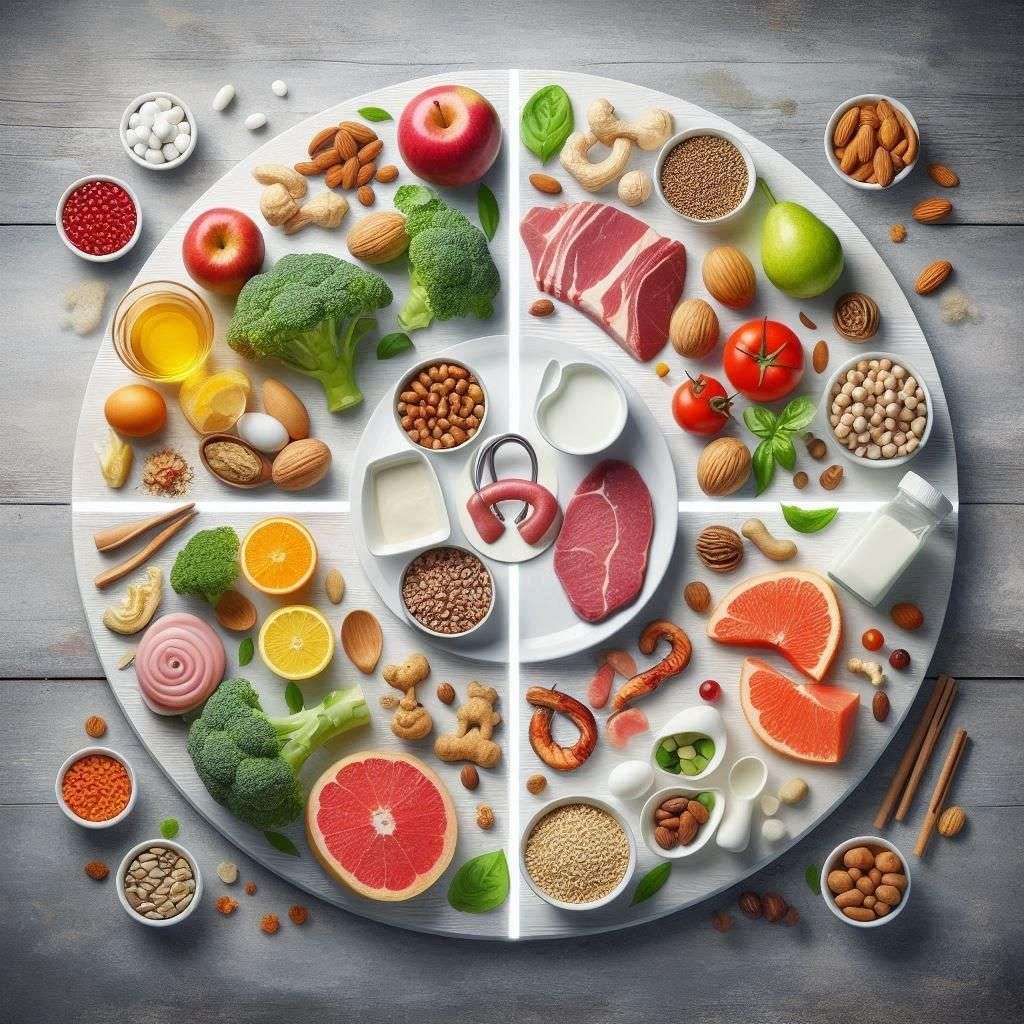Advertisement
Overview:
●A sustainable diet emphasizes long-term, balanced eating habits rather than quick fixes, incorporating principles like adequacy, balance, calorie control, density, moderation, and variety (ABCDMV).
●Essential nutrients—proteins, carbohydrates, fats, vitamins, minerals, and water—support vital bodily functions, with a varied diet ensuring adequate intake.
●A healthy diet can prevent chronic diseases such as obesity and diabetes, with guidelines from WHO and FAO promoting diverse food choices, reduced saturated fats and sugars, and proper hydration.
●Tools like the Healthy Eating Plate and Pyramid guide balanced eating, while limiting ultra-processed foods and following hydration guidelines ensure overall wellness and disease prevention.
Whenever the word “diet” is mentioned, many people’s minds are filled with thoughts of short-term measures to lose weight quickly. People often think it involves strict food exclusion. In actuality, the word “diet” refers to whatever we habitually consume.
A sound eating program promotes sustainable modifications and nurtures proper feeding routines.
In developing a workable meal plan, nutritionists frequently recommend using an ABCDMV strategy based on six key principles: adequacy, balance, calorie control, density, moderation, and variety.
Such principles help people make healthy decisions that will improve their overall wellbeing in future years.

Understanding nutritional needs
To lead a healthy life, our bodies need a variety of proteins, carbohydrates, fats, vitamins, minerals, and water. Each nutrient has an important role to play for bodily functions.
Protein is essential for the development and repair of cells made up of amino acids, some of which we have to get from the food we eat. Proteins can be found in meat, fish eggs, and legumes, among others.
Carbohydrates are the primary source of energy. They are broken down to glucose that fuels the cells. It also contains fiber that helps in digestion, thereby promoting a healthy gut. These substances can be obtained from whole grains, fruits, vegetables, as well as legumes.
Fats are not only necessary for energy storage but also cell function and vitamin absorption purposes. For good health, include healthy fats like avocado, nuts, seeds, and olive oil in your diet.
Vitamins and minerals perform a variety of functions within the body. In addition, it helps maintain bone density as well as blood formation and immune response, respectively, which are very important. A varied diet will provide these essential nutrients.
Promoting a healthy diet for preventing chronic diseases
A good diet helps to protect against non-communicable chronic diseases such as obesity and diabetes at all stages of life.
It, in conjunction with regular physical activity, results in what is referred to as “sustainable health,” where people age actively while reducing the risks of getting ill.
Both the Food and Agriculture Organization of the United Nations (FAO) and the World Health Organization (WHO) have endorsed some principles for a healthy diet.
Having a variety of foods ensures that the body gets adequate nutrients. Eating enough fruits and vegetables—around 400 g (or five portions) daily—can boost a person’s health.
Including whole grains, nuts, and healthy fats rich in unsaturated fatty acids can also contribute to general well-being.
Restricting saturated fats to less than 10% of the total energy intake prevents unhealthy weight gain among adults. Reducing free sugars to below 10% of the total energy intake prevents unhealthy weight gain among adults.
Advertisement
Cardiovascular health promotion calls for that salt intake be restricted to less than 5 g per day (equivalent to one teaspoon).
Good health requires being appropriately hydrated by taking enough water. Because it can cause serious health problems, alcohol should not be considered as part of a healthy diet.

The healthy eating plate and pyramid
The Healthy Eating Plate and the Pyramid are illustrative representations that endorse a healthy diet for optimum health.
These mechanisms, which were developed by experts in the field of nutrition, outline possible dietary approaches that would help individuals to choose their meals wisely.
The Healthy Eating Plate is focused on portion control and encourages fruit and vegetable consumption, whole grain use, and lean proteins and oils while discouraging unhealthy fats and sugars.
Likewise, the Healthy Eating Pyramid is an expanded version that puts more emphasis on plant-based foods, moderate dairy intake, as well as protein consumption with limited amounts of fats and sweets.
Both models call for diversified, nutrient-rich diets that support overall wellness through balanced eating habits.
Understanding ultra-processed foods and AGE/ALE
Ultra-processed foods have advanced glycation end products (AGE) and lipoxidation end products (ALE) or their precursors, which develop within the food processing and our bodies.
AGE and ALE are produced during Maillard reactions and lipid peroxidation. The Maillard reaction occurs when sugars react with amino acids during cooking, thereby affecting food color, texture, aroma, and flavor.
These compounds become harmful when they build up in your body. Following guidelines like the Healthy Eating Plate and Pyramid can reduce AGE and ALE in food and prevent their buildup in our bodies.
Cooking methods like steaming, grilling, and oven cooking that are recommended by SENC for healthy eating also help lower AGE and ALE levels in food.

The role of beverages
To have a healthy diet, you must always keep yourself hydrated. The Spanish Society of Community Nutrition (SENC) developed the Hydration Pyramid, which advises on how to stay properly hydrated.
According to it, water should be the main drink for hydration. Drinking coffee or tea without sugar is also good for the body. These drinks contain components that can help lower chances of chronic illnesses such as diabetes and obesity.
Other beverages like freshly squeezed fruit juice, vegetable juices, milk and milk products, and plant-based drinks are okay, but only in moderate quantities.
They might contain added sugars, salts, or fats and hence should not act as a major source of hydrating your body. Sports drinks and soft beverages ought to be limited because they are full of sugar and other additives, which is why they are put at the top of the Hydration Pyramid.
Conclusion
Adopting a sustainable diet with principles like adequacy, balance, moderation, and variety is crucial for health.
Essential nutrients support bodily functions and prevent chronic diseases like obesity and diabetes. WHO and FAO guidelines promote diverse food choices, reduced fats and sugars, and adequate hydration with tools like the Healthy Eating Plate and Pyramid.
Advertisement





